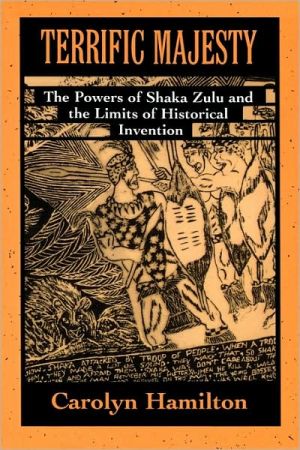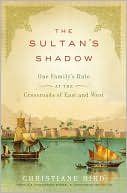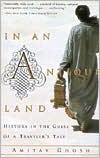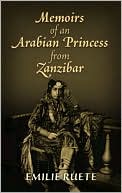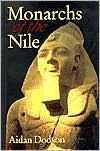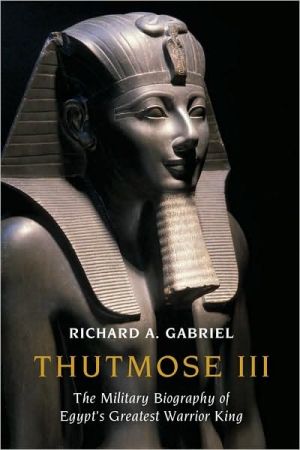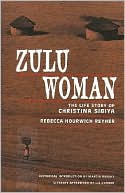Terrific Majesty
Since his assassination in 1828, King Shaka Zulu—founder of the powerful Zulu kingdom and leader of the army that nearly toppled British colonial rule in South Africa—has made his empire in popular imaginations throughout Africa and the West. Shaka is today the hero of Zulu nationalism, the centerpiece of Inkatha ideology, a demon of apartheid, the namesake of a South African theme park, even the subject of a major TV film.\ Terrific Majestyexplores the reasons for the potency of Shaka's...
Search in google:
Since his assassination in 1828, King Shaka Zulu has made his empire in popular imaginations throughout Africa and the West. Shaka is today the hero of Zulu nationalism, the centerpiece of Inkatha ideology, a demon of apartheid, the namesake of a South African theme park, even the subject of a major TV film. Terrific Majesty explores the reasons for the potency of Shaka's image. Diana Jeater - Left History She reveals the various ways in which the image of Shaka has been used in political struggles in eastern South Africa, from his lifetime right up to the present day. Her work has real relevance to contemporary politics, addressing the extreme bloodshed in Natal in the late 1980s, and the possibilities of drawing on the region's "heritage" to create the reconciled "rainbow nation" in the early 1990s…Hamilton's argument has significance well beyond the confines of Southern African studies. Her emphasis on the historical dynamics of invented traditions is salutary. Her insistence that local politics and cultural systems place limits on the invention of tradition carries lessons for all those who, following Edward Thompson, aim to rescue their subjects from "the enormous condescension of posterity." Her methodology, too, has wider application…Hamilton's book is inspiring, not least, because it suggests a life beyond post-modernist relativism.
AcknowledgementsOrthographic and terminological notesAbbreviationsMapIntroduction11Painted chests, academic body servants, and visions of modern airlines: Shaka in contemporary discourses82The origins of the image of Shaka363The men who would be Shaka: Shaka as a model for the Natal native administration724"The establishment of a living source of tradition": James Stuart and the genius of Shakan despotism1305Shaka as metaphor, memory, and history in apartheid South Africa1686"The Government resembles Tshaka"206Glossary217Notes219Bibliography257Index275
\ African Studies QuarterlyThe book is both a thoughtful disquisition on the irreducible ambiguity of knowing the past, and a work of rigorous deductive empiricism, in which the reliability of particular historical voices is interrogated. Hamilton shows the way elements of precolonial African authority were tendentiously apprehended by colonial officials, and contested by Africans, as a "Shaka" tradition. She rejects the idea that historical meaning is produced moment by moment; instead she shows how all reinterpretations of the Zulu kingdom have been constrained by popular traditions rooted in genuine historical experience...As a piece of scholarship, Terrific Majesty will be indispensable reading for students of the sources for Zulu history. More than this, and almost alone in recent Africanist scholarship, it is an effortless read.\ — Paul S. Landau\ \ \ \ \ \ BiographyAs the title suggests, Hamilton's book is not a biography of Shaka, but rather an exploration of his evolution as an icon of African "tribalism" and Zulu nationalism...Hamilton spends little time on Shaka the man, devoting her attention instead to the different ways in which South African communities have chosen to remember him...Hamilton's study is extremely erudite, and her argument is well-grounded in the relevant literatures of history, anthropology, and cultural studies...The book makes an important contribution to the field of Southern African Studies, while drawing conclusions that have implications outside of Africa.\ — James Burns\ \ \ \ ChoiceHamilton's thought-provoking monograph on the persistence of Shaka as a metaphor in South African history and politics and the changing representations of the famous Zulu king over time constitutes a subtle excursion in philosophy of history and discourse analysis. Her major argument challenges most postmodernist interpretations of the Shakan legend by suggesting that Shaka was not simply a colonial invention...Hamilton deftly analyzes the construction of the Zulu past through a variety of discourses.\ — J. O. Gump\ \ \ \ \ \ Left HistoryShe reveals the various ways in which the image of Shaka has been used in political struggles in eastern South Africa, from his lifetime right up to the present day. Her work has real relevance to contemporary politics, addressing the extreme bloodshed in Natal in the late 1980s, and the possibilities of drawing on the region's "heritage" to create the reconciled "rainbow nation" in the early 1990s Hamilton's argument has significance well beyond the confines of Southern African studies. Her emphasis on the historical dynamics of invented traditions is salutary. Her insistence that local politics and cultural systems place limits on the invention of tradition carries lessons for all those who, following Edward Thompson, aim to rescue their subjects from "the enormous condescension of posterity." Her methodology, too, has wider application Hamilton's book is inspiring, not least, because it suggests a life beyond post-modernist relativism.\ — Diana Jeater\ \ \ \ \ \ Times Literary SupplementCarolyn Hamilton's new book is not a history of Shaka; it is rather a history of the histories of Shaka, an attempt to understand [its] changing presentations. This might, at first glance, seem a thoroughly postmodern kind of project, hinting at a fascination with history as representation rather than a concern with what actually happened in the past. But at its best it is more than this, as Hamilton presents very real debates about what did happen, and she does so in the face of a profound, bitter and not infrequently violent historical controversy.\ — Justin Willis\ \ \
